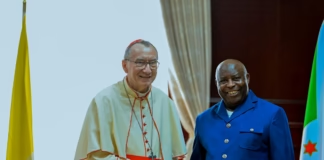Geneva, Sept. 3, 2025 The United Nations Human Rights Council has adopted a landmark resolution on the safety of journalists, laying out a detailed roadmap that urges governments to reform restrictive laws, protect reporters from both physical and digital threats, and end the culture of impunity that fuels attacks on the press.
Backed by more than 70 nations, the resolution calls for immediate steps to safeguard journalists in conflict zones, protests, and elections, while addressing modern dangers such as spyware, online harassment and strategic lawsuits aimed at silencing critical reporting. It also commissions a UN study on the effectiveness of national protections, to be presented at the Council’s 65th session.
“Journalists too often pay with their lives or liberty for simply doing their jobs. This resolution is a concrete path forward,” said Tawfik Jelassi, UNESCO’s Assistant Director-General for Communication and Information. “Prevention, protection and prosecution must go hand in hand if we are to end this crisis.”
The resolution condemns internet shutdowns, arbitrary surveillance and the misuse of defamation or security laws to muzzle the press. It urges states to establish rapid-response systems for threatened reporters, create special investigative units to prosecute crimes against journalists, and adopt national action plans to tackle emerging risks, particularly in the digital sphere.
Rights groups hailed the Council’s strong language. “This resolution marks a turning point,” said Agnès Callamard, Secretary-General of Amnesty International. “It directly addresses surveillance, SLAPP lawsuits and digital harassment. Now, governments must show political will to translate commitments into protection.”
The text also places responsibility on technology and social media companies, requiring them to conduct human rights impact assessments, curb the export of surveillance tools, and provide escalation channels for journalists facing online abuse.
Women journalists, who face disproportionate risks including gender-based violence and harassment, received special attention. The resolution calls for gender-responsive measures, from legal protections to psychological support, to ensure women can remain in the profession safely and equally.
Analysts say the roadmap underscores a global shift: safeguarding journalists is no longer treated as a peripheral issue but as central to human rights, democracy and sustainable development.
“The protection of journalists is not only about their safety,” the resolution states. “It is about safeguarding democracy itself.”



